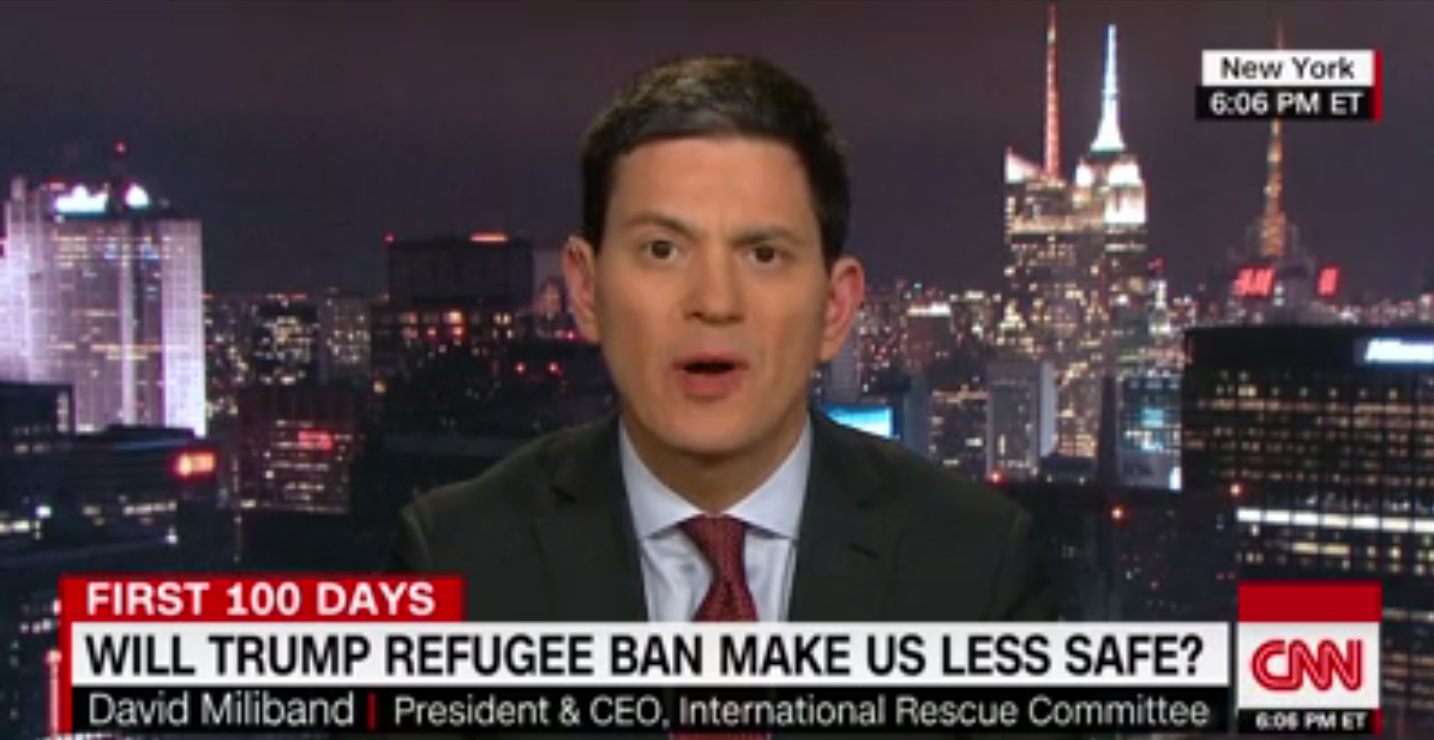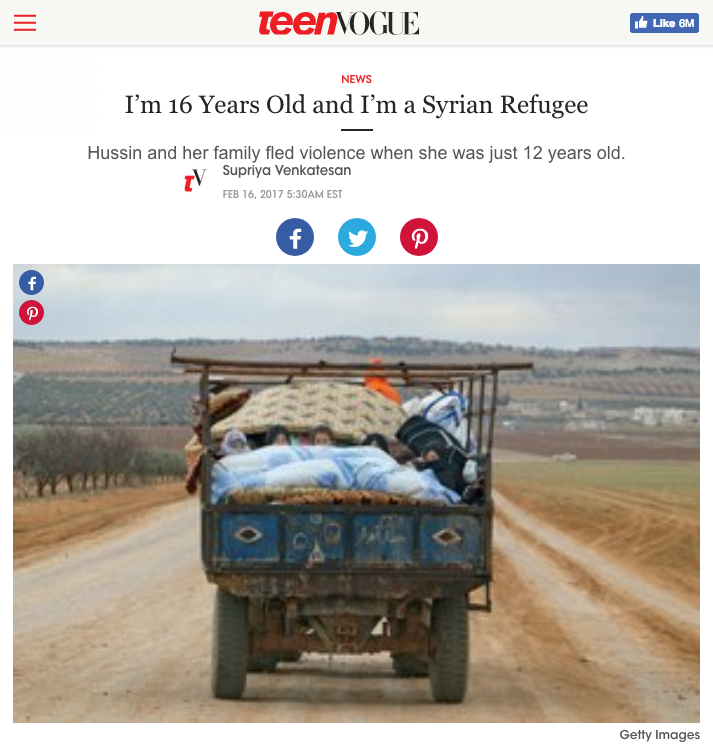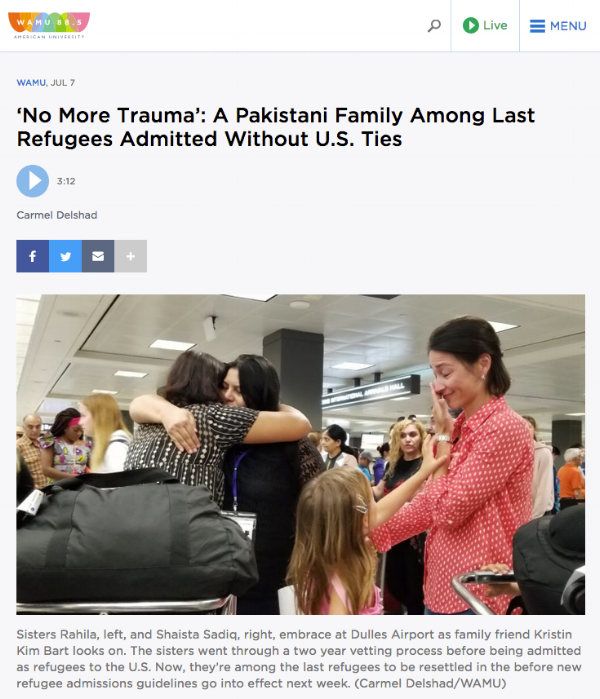The international rescue committee: pushing back on the travel ban, highlighting refugee stories
When one of the very first executive orders signed by the incoming Trump administration was to indefinitely ban the arrival of Syrian refugees and suspend the U.S’s entire resettlement program for 120 days, the International Rescue Committee sprung into action. IRC legal and advocacy leaders began to issue analysis and communicate how the changes affected the very successful US resettlement program and endangered the world’s most vulnerable. The leaders of dozens of local IRC offices operating to resettle refugees in the US amplified stories of community support for refugees and refugees supporting their communities.
Within the first 48 hours of President Trump’s Travel Ban, the IRC voiced their strong opposition, resulting in over 20 original stories from top-tier outlets including The Washington Post, New York Times and The Guardian. A story by the Associated Press included a quote from the IRC, which was reprinted over 200 times, helping to shape what the public understood of the ban’s consequences.
IRC President David Miliband appeared on CNN where he discussed the fate of future refugee arrivals into the U.S. and emphasized the threat of the travel ban. Miliband was also featured on CBS’ “Red & Blue” to address the immediate impact on refugee resettlement both domestically and internationally, the rigorous security protocols already in place, and the connection between the resettlement program and American values.
In a New York Times op-ed, Miliband wrote that the executive order “thrusts into limbo an estimated 60,000 vulnerable refugees, most of whom have already been vetted and cleared for resettlement here,” and pushed back on the myth that refugees aren’t welcome by describing the outpouring of support from elected officials, community leaders and advocates “because they have witnessed the myriad ways refugees have enriched their communities over the years.”
Teen Vogue published a powerful profile of Hussin, a 16-year old Syrian refugee resettled by the IRC to resonate with their young readers. She says of resettling in the U.S., “There is a future for me, for my family. There is safety here. It was an emotional and psychological relief to feel safe – no guns shooting or explosions; no one will break into our homes. Even when we were in Jordan and would hear fireworks, we would be scared. Here, when I hear fireworks, I am OK.”
In a piece timed to Mother’s Day, Broadly published a stirring feature on a refugee mother and daughter who were resettled by the IRC in Phoenix. The daughter is excelling in a university program and her mother works for the IRC’s local Child Watch Program. The pairs interview underscored the universal bond between mothers and daughters while showing a refugee family that is deeply involved in their new community and giving back to others. The daughter, Taghreed, is optimistic about living in the US and reuniting with more of her family, saying, "We have so few memories, which is heartbreaking. But this Mother's Day we get to make new memories."
When the revised travel order was announced, Miliband penned an op-ed for The Guardian pushing back on the dangerous myths about refugees, and reminding readers that resettlement “began as an outpouring of support for humanitarian reasons [but] led to an economic revitalization in cities across the US.”
As the executive order faced more legal challenges, Miliband visited Real Time with Bill Maher alongside journalists S.E Cupp, Arwa Damon and Rep Seth Moulton to discuss the threat the Trump Travel Ban poses to national security. An average viewership of 4.3 million, the episode with David was also streamed online over a half of a million times.
After the Supreme Court’s ruling to allow part of the Travel Ban to proceed, Balestra assisted the IRC in welcoming the Sadiq family, one of the last families to enter the United States before the implementation of the Granny Ban. Over 20 supporters and local IRC staff showed up to greet the family at Dulles airport in Washington, D.C. The family and senior IRC leadership were interviewed at the airport for a piece in WAMU NPR’s D.C affiliate, which subsequently was aired nationally on NPR’s Here and Now. By showing the public the real individuals and families affected by these new regulations and putting faces to the numbers, this coverage aided in driving IRC’s goal of shedding light on the reality of the Travel Ban.






